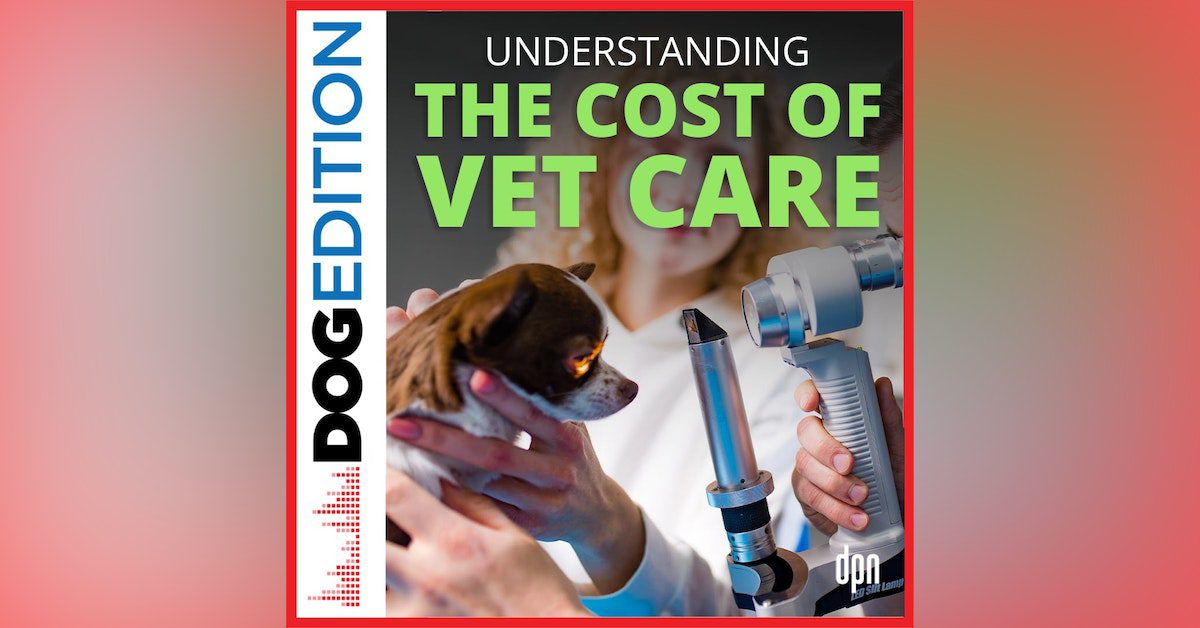Owning a dog can bring immense joy and companionship, but it's important to consider the financial responsibilities that come with it. In this article, we will delve into the various costs associated with owning a dog, helping you make an informed decision about whether you're ready for such a commitment.
Key Takeaways:
- Owning a dog can be expensive, with costs including food, grooming, veterinary care, and supplies.
- Annual expenses for owning a dog can range from $1,000 to $2,500 or more.
- Unexpected medical expenses can significantly increase the cost of owning a dog.
- Training and socialization are important investments in a dog's well-being and can help prevent behavioral issues that may lead to additional expenses.
- Researching and comparing prices for services and products can help minimize the cost of owning a dog.
Expenses of Owning a Dog
Owning a dog can bring so much joy and companionship to your life, but it's important to be aware of the expenses that come along with it. Dogs require food, shelter, medical care, and other supplies to keep them happy and healthy. These costs can add up over time, so it's essential to budget for them.
Some of the expenses you may encounter when owning a dog include:
- Veterinary care: Regular check-ups, vaccinations, and preventive medications are necessary to ensure your dog stays healthy. These visits can cost anywhere from $50 to $200 per year.
- Food: Dogs need a balanced diet that meets their nutritional needs. The cost of dog food varies depending on the brand and size of your dog. On average, you can expect to spend around $20 to $60 per month on food.
- Grooming: Depending on the breed of your dog, grooming may be required regularly. This includes bathing, brushing, nail trimming, and haircuts. Grooming costs can range from $30 to $100 or more per session.
- Training: It's important to train your dog properly to ensure they behave well in different situations. Training classes or private sessions with a professional trainer can cost around $100 to $200 for a basic obedience course.
- Supplies: Your dog will need essentials like a collar, leash, bedding, toys, bowls for food and water, and possibly a crate for training or travel. These items can add up quickly and may cost around $100 to $200 initially.
It's crucial to consider these expenses before bringing a new furry friend into your home. Planning ahead will help you provide the best care for your dog without breaking the bank.
Cost of Buying or Adopting a Dog
When deciding to bring a dog into your family, one of the first considerations is whether to buy from a breeder or adopt from a shelter. Both options have their own costs and benefits.
If you choose to buy a dog from a breeder, the cost can vary depending on the breed and pedigree. Purebred dogs are usually more expensive than mixed breeds. Prices can range anywhere from $500 to several thousand dollars. It's important to research reputable breeders and ensure they follow ethical breeding practices.
On the other hand, adopting a dog from a shelter is often more affordable. Adoption fees typically range from $50 to $300, which usually includes vaccinations, spaying/neutering, and microchipping. By adopting, you're not only saving money but also giving a loving home to a dog in need.
Regardless of whether you choose to buy or adopt, it's crucial to consider other costs such as initial veterinary care, supplies, and ongoing expenses like food and grooming.
Essential Supplies for Your New Dog
When bringing a new dog into your home, there are several essential supplies that you will need to ensure their comfort and well-being. These include:
-
Food and Water Bowls:
Choose sturdy, non-slip bowls that are the appropriate size for your dog's breed.
-
Collar and Leash:
A collar with identification tags and a leash are necessary for walks and outings.
-
Dog Bed or Crate:
Provide a comfortable space for your dog to rest and sleep.
-
Toys:
Dogs need mental stimulation and playtime, so invest in a variety of toys to keep them entertained.
-
Grooming Supplies:
Depending on your dog's coat type, you may need brushes, combs, nail clippers, and shampoo.
By ensuring you have these essential supplies before bringing your new dog home, you can help them settle in comfortably and provide for their basic needs.
Recurring Costs of Owning a Dog
Owning a dog comes with recurring costs that should be factored into your budget. Some common recurring expenses include:
-
Food:
Dogs require regular meals with high-quality food tailored to their age, size, and dietary needs.
-
Vaccinations and Preventive Medications:
Regular vaccinations protect your dog from diseases, while preventive medications like flea and tick treatments are essential for their health.
-
Grooming Services:
Depending on your dog's coat type, you may need to schedule regular grooming appointments for haircuts and maintenance.
-
Training Classes:
Ongoing training is important for a well-behaved dog, and enrolling them in training classes can be an additional recurring cost.
Considering these recurring costs will help you plan your finances accordingly and ensure that you can provide the necessary care for your furry friend.
The Importance and Cost of Veterinary Care for Dogs
Veterinary care is crucial for maintaining the health and well-being of your dog. Regular check-ups, vaccinations, and preventive treatments are essential. However, veterinary care can also come with a significant cost. Some key aspects to consider include:
-
Annual Check-ups:
It is recommended to take your dog for an annual wellness exam to monitor their overall health and catch any potential issues early.
-
Vaccinations:
Vaccinations protect dogs from various diseases such as rabies, distemper, and parvovirus. These vaccines need to be administered regularly.
-
Surgical Procedures:
In case of accidents or illnesses requiring surgery, the cost can be substantial. It is wise to have pet insurance or set aside an emergency fund to cover unexpected expenses.
-
Dental Care:
Dental cleanings and treatments are necessary to maintain good oral hygiene in dogs. Neglecting dental care can lead to serious health issues down the line.
Prioritizing veterinary care is essential for keeping your dog healthy and preventing potential problems from escalating into more serious conditions.
Grooming and Hygiene Expenses for Dogs
Grooming and hygiene are important aspects of dog care, and they come with associated expenses. The grooming needs of dogs can vary depending on their breed and coat type. Some grooming expenses to consider include:
-
Professional Grooming:
Certain breeds require regular professional grooming, which includes haircuts, nail trims, ear cleaning, and more.
-
Grooming Supplies:
Even if you choose to groom your dog at home, you will need to invest in grooming supplies such as brushes, combs, shampoos, and conditioners.
-
Dental Care Products:
Regular brushing of your dog's teeth is crucial for maintaining good oral hygiene. Dental care products like toothbrushes and toothpaste specifically designed for dogs are necessary.
Proper grooming not only keeps your dog looking their best but also helps prevent skin issues, matting, and other health problems related to poor hygiene.
Impact of Training Classes on the Cost of Owning a Dog
Training classes can have a significant impact on the cost of owning a dog but are often worth the investment. Some factors to consider regarding training classes include:
-
Puppy Kindergarten:
Enrolling your puppy in a kindergarten class helps them develop socialization skills and learn basic commands.
-
Obedience Training:
Obedience training classes teach dogs essential commands like sit, stay, come, and leash manners. These classes help create a well-behaved dog.
-
Specialized Training:
If you plan to engage in activities like agility, therapy work, or search and rescue, specialized training classes may be necessary.
While training classes do come with a cost, they provide valuable skills for your dog and contribute to a harmonious relationship between you and your furry companion.
Dietary Needs and Food Costs for Different Dog Breeds
Different dog breeds have varying dietary needs, and the cost of food can vary accordingly. Some factors to consider when it comes to dietary needs and food costs include:
-
Breed Size:
Smaller breeds generally require less food than larger breeds. Adjusting portion sizes accordingly can help manage costs.
-
Age and Activity Level:
Puppies, adult dogs, and senior dogs have different nutritional requirements. Active dogs may need higher-calorie diets compared to more sedentary ones.
-
Dietary Restrictions or Allergies:
Some dogs may have specific dietary restrictions or allergies that require specialized food, which can be more expensive.
Consulting with your veterinarian about the appropriate diet for your dog's breed, age, and health condition will ensure they receive proper nutrition while managing food costs effectively.
Unexpected Expenses When Owning a Dog: Examples
Owning a dog inevitably comes with unexpected expenses that should be considered in your budget. Some examples of unexpected expenses include:
-
Veterinary Emergencies:
Accidents or sudden illnesses may require immediate veterinary attention, which can be costly.
-
Medication or Supplements:
Dogs may develop health issues that require long-term medication or supplements, adding to the overall expenses.
-
Repairs or Replacements:
Dogs can sometimes damage furniture, chew on household items, or destroy toys, leading to unexpected repair or replacement costs.
-
Travel Expenses:
If you plan to travel with your dog, there may be additional costs for pet-friendly accommodations, transportation, and vaccinations required for certain destinations.
Having an emergency fund specifically designated for unexpected expenses will help you handle these situations without causing financial strain.
| Conclusion | |
| Owning a dog can be a rewarding experience, but it comes with financial responsibilities. | It is important to consider the costs associated with owning a dog before bringing one into your home. From initial expenses like adoption fees and supplies to ongoing costs such as food, grooming, veterinary care, and training, the financial commitment can add up over time. |
| However, the love, companionship, and joy that dogs bring into our lives are priceless. | While there may be expenses involved in owning a dog, the bond formed and the happiness they bring are immeasurable. With proper planning and budgeting, you can
More Reads
Dr. Clara Bennett
Hello, fellow pet enthusiasts! I'm Dr. Clara Bennett, your go-to expert on all things pets. With a background in veterinary medicine and a passion for nutrition, I've spent years diving deep into the world of cats, dogs, birds, horses, and the products that keep them thriving. From the English countryside, I've witnessed the magic of animals and am here to share my knowledge, ensuring your pets receive the best care. Together, let's master the art of pet care!
All Posts »
Next Steps In Mastering Cat CareNext Steps In Mastering Dog CareJoin Our NewsletterSubscribe to receive our latest updates in your inbox! |















